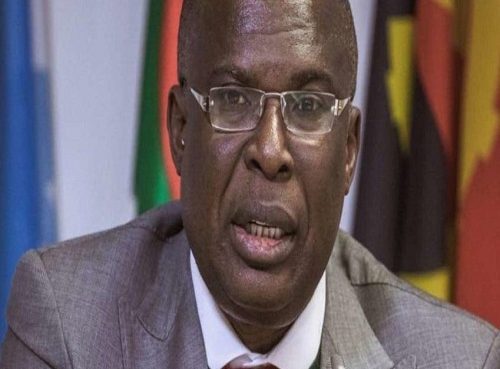As Seplat Energy’s acquisition of Mobil Producing Nigeria Unlimited ran into a hitch last week, there are concerns that unless the issues are amicably and urgently resolved, Nigeria may be killing indigenous initiatives and sending wrong signals to the international community seeking to invest in the nation’s oil industry, reports Festus Akanbi
For obvious reasons, different interpretations, speculations and allegations have continued to trail the botched Seplat Energy’s acquisition of Mobil Producing Nigeria Unlimited from Exxon Mobil Corporation.
It was a back-and-forth scenario as an earlier statement from the Presidency on Monday had conveyed President Muhammadu Buhari’s approval of the acquisition.
However, the statement had barely trended in the media for a few hours before the Nigerian Upstream Petroleum Regulatory Commission (NUPRC) invalidated the deal, insisting the matter was a regulatory one and that nothing had changed after it had earlier notified ExxonMobil that the transaction had been declined.
However, 48 hours later, the president, who is also the Minister of Petroleum Resources withdrew his consent to the controversial deal as he blamed the lack of coordination among the concerned agencies for the confusion, explaining that he had weighed the likely ramifications of the earlier decision.
Oil industry experts said had the N1.283 billion sales and purchase deal sailed through, the Presidency, which had cited the need to attract foreign investment into the oil sector as one of the reasons for its action, would have overridden the long-drawn attempt by the Nigerian National Petroleum Company Limited (NNPCL) to block the deal.
They added that if it succeeded, the transaction would have seen the acquisition of the entire offshore shallow water business of ExxonMobil in Nigeria and was expected to deliver a 186 per cent increase in production from 51,000 bpd to 146,000 bpd or a 170 per cent increase in 2P liquids reserves, from 241 MMbbl to 650 MMbbl.
In addition, it was expected to deliver a 14 per cent increase in 2P gas reserves from 1,501 Bscf to 1,712 Bscf, plus a significant undeveloped gas potential of 2,910 Bscf (JV: 7,275 Bscf)
Among others, it would also increase by 89 per cent, the total 2P reserves from 499 MMboe to 945 MMboe, including offshore fields with dedicated, MPNU-operated export routes offering enhanced security and reliability.
Clarifications
A statement by the Chief Executive of the NUPRC, Mr. Gbenga Komolafe, which affirmed that the status quo remains concerning the ExxonMobil/Seplat Energy share acquisition, clarified that the commission in line with the provisions of the Petroleum Industry Act 2021 is the sole regulator in dealing with such matters in the Nigerian upstream sector.
The clarification by the NUPRC Chief Executive followed an earlier statement that President Buhari had approved the acquisition which effectively nullified the long-drawn attempt by the NNPC Limited to block the $1.283 billion sale and purchase transaction between SeplatEnergies and Mobil Producing Nigeria Unlimited (MPNU).
Analysts said the law as it stands today gives the regulator powers over such transactions. The old Petroleum Act gave powers of consent and approvals to the Minister of Petroleum. However, the new law, which is the PIA vests such powers in the regulatory commission. And Buhari is standing with the law.
Upholding the Law
Experts are also of the view that the NUPRC is merely upholding the law and anything short of it would have amounted to business as usual. Consequently, the NUPRC has directed that the status quo should be maintained in respect of ExxonMobil/Seplat Energy’s share acquisition.
“As it were, the issue at stake is purely a regulatory matter and the commission had earlier communicated the decline of ministerial assent to ExxonMobil in this regard.
“As such the commission further affirms that the status quo remains.
“The commission is committed to ensuring a predictable and conducive regulatory environment at all times in the Nigerian upstream sector,” he said.
In February 2022, Seplat Energy Plc announced an agreement to acquire the entire share capital of Mobil Producing Nigeria Unlimited from Exxon Mobil Corporation, Delaware for $1.28 billion. The transaction entails the acquisition of ExxonMobil Nigeria’s entire offshore shallow water business.
Industry affairs commentators described ExxonMobil Nigeria’s shallow water business as an established, high-quality operation with a highly skilled local operating team and a track record of safe operations.
However, it could be recalled that a pre-emptive right over the assets had been secured by the NNPC Limited, which in July won a court decision temporarily blocking Exxon Mobil Corporation from selling assets in Nigeria to Seplat Energy Plc.
It was also gathered that a Federal High Court judge in Abuja had granted NNPC an “order of interim injunction” on July 6, 2022, barring Exxon Mobil “from completing any divestment” in a unit that ultimately operates four licenses in Nigeria.
Analysts said many industry stakeholders were shocked by the presidency’s announcement of the approval of the deal because the transaction was reportedly declined on July 5 this year by the president who doubles as the Minister of Petroleum Resources and was assisted by Chief Timpre Sylva as Minister of State.
Akwa Ibom Joins Legal Tango
Apart from NUPRC, another interested party that kicked against the initial presidential statement on the purported acquisition was the Akwa Ibom State government, which warned Seplat Energy against any move to acquire the shallow water assets of ExxonMobil Producing Nigeria Unlimited.
The warning was contained in a statement signed by the state Attorney-General and Commissioner of Justice, Uko Essien Udom (SAN), and made available to newsmen yesterday in Uyo.
The statement indicated that there is a subsisting restraining order of injunction by the High Court of the state.
The state government noted that ExxonMobil, Seplat Energy, NNPC Ltd, and the Federal Government of Nigeria, all have actual knowledge of the suit and the action of the FG is not only contemptuous but infringes on the judicial process of the Akwa Ibom State High Court.
It reads: “Our attention has been drawn to a publication by Femi Adesina, Special Adviser to the President (Media and Publicity), to the effect that President Muhammadu Buhari, in his capacity as Minister of Petroleum Resources has consented to the acquisition of shallow water assets of Mobil Producing Nigeria Unlimited by Seplat Energy.
“This is to inform the general public that this proposed transaction is subject to restraining orders of an injunction of the High Court of Akwa Ibom State, sitting in Uyo in Suits No. HEK/56/2018,
Attorney General of Akwa Ibom State V. Mobil Producing Nigeria Unlimited and HU/209/2020, Mobil Producing Nigeria Unlimited V. Governor of Akwa Ibom State & three others.
“ExxonMobil, Seplat Energy, NNPC Ltd, and the Federal Government of Nigeria, all have actual knowledge of the court orders, having been duly served with the orders and/or various newspaper publications of same.
“This executive interference with the judicial process of a court of competent jurisdiction.
In the Eye of Law
An industry source privy to the deal faulted the presidential endorsement of the Seplat/ExxonMobil deal, saying there are relevant portions of the PIA act that vested the authority for approval on the NUPRC.
He stated, “Section 95, sub-section 10 of the PIA Act states: “Where the application for an assignment or a transfer of a petroleum prospecting license of petroleum mining lease is refused, the commission shall inform the applicant of the reasons for the refusal and may give reasonable time within which further representations may be made by the applicant or by third parties in respect of the application.”
Efforts to get a direct response from the spokesperson for the company, Chioma Nwachukwu were rebuffed as she neither picked up her calls nor replied to the Whatsapp messages sent to her.
The indigenous oil firm, in a statement signed by its Chief Financial Officer, Emeka Onwuka, later in the week threatened to take legal action against all the parties that had alleged that Seplat had tried to bribe its way through to the acquisition.










